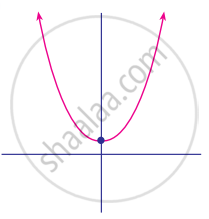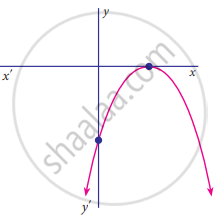Advertisements
Advertisements
प्रश्न
Find p(0), p(1), p(–2) for the following polynomial:
p(y) = (y + 2)(y – 2)
उत्तर
Consider the polynomial:
p(y) = (y + 2)(y – 2)
The value of given polynomial at y = 0 is
p(0) = (0 + 2)(0 – 2)
= 2 × –2
= – 4
When y = 1
p(1) = (1 + 2)(1 – 2)
= 3 × –1
= 3
When y = –2
p(1) = (–2 + 2)(–2 – 2)
= 0 × (–2 – 2)
= 0
APPEARS IN
संबंधित प्रश्न
Find the zero of the polynomial in the following case:
p(x) = 3x
Find the zero of the polynomial in the following case:
p(x) = ax, a ≠ 0
Verify whether the indicated numbers is zeroes of the polynomials corresponding to them in the following case:
`g(x)=3x^2-2,` `x=2/sqrt3 2/sqrt3`
Verify whether the indicated numbers is zeroes of the polynomials corresponding to them in the following case:
`f(x) = lx + m , x = - m/1`
Find the number of zeros of the following polynomial represented by their graph

Find the number of zeros of the following polynomial represented by their graph

Find the number of zeros of the following polynomial represented by their graph

If p(x) = x + 3, then p(x) + p(–x) is equal to ______.
`-1/3` is a zero of 3x + 1
Find the zeroes of the polynomial in the following:
h(y) = 2y
